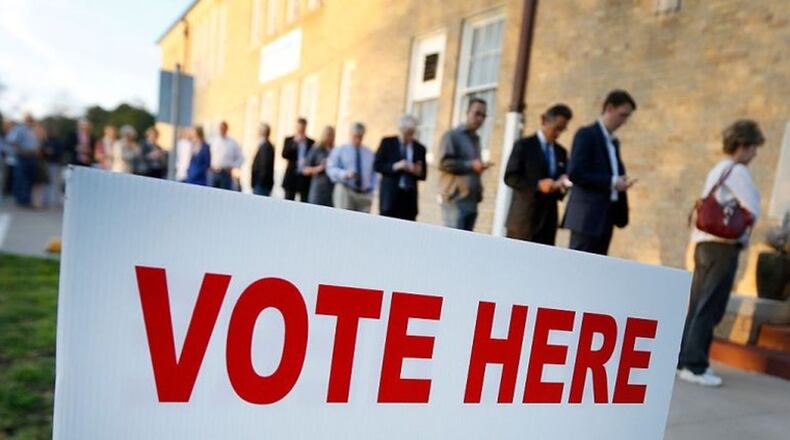All three issues appeared under Issue 13 on the November ballot and were rejected with 52% voting “no,” according to the Greene County Board of Elections. This time around, the Yellow Springs village council members believe the issues might have a better chance of passing because they will be voted on as separate issues.
November 2019: Yellow Springs voters say ‘no’ to let teens, non-U.S. citizens vote
Issue 3 would amend the charter to allow the mayor “to be nominated for a term of four years, commencing with the November 2021 general election,” according to a sample ballot.
Issue 4 would make residents who are 16 years of age and older eligible to vote for Yellow Springs local issues and local candidates.
Issue 5 would allow residents of the village who are non-U.S. citizens to be eligible to vote for local issues and local candidates.
Greene County voters face choices for commission, prosecutor, more
Some voters didn’t like that the issues were combined last year, said Brian Housh, president of Yellow Springs Council.
“So there was a request from citizens that we put the items back on the ballot as three separate items,” he said.
Housh, who works as the speech and debate coach for Yellow Springs High School and middle school, said he was disappointed when the issues were more controversial last fall than council predicted.
“In fact, our former village manager made the comment that she thought they were all no-brainer kind of issues, but we discovered that in fact, I guess everything has the potential to be controversial on some level,” Housh said.
State awards Greene County half million for new trail in Yellow Springs
Some criticism of the Issue 4 amendment, Housh said, especially among the village’s older residents, claimed 16 and 17-year-olds are too immature.
“Research shows when people vote earlier, they will develop that habit when they get older,” Housh said. “Voting numbers show 18- to 25-year-olds generally aren’t participating.”
There is a national campaign to lower the voting age to 16.
PHOTOS: Deadly tornadoes slam into Nashville, central Tennessee
Vote16USA.org serves as a hub for local campaign efforts and raising awareness of the initiative on a national level, according to the website.
Christopher Conard, attorney for the village, was asked in August to provide a legal opinion regarding the authority of the village to place the charter amendments on the ballot.
In Conard’s letter addressed to Greene County Assistant Prosecutor Elizabeth Ellis, who was advising the elections board, Conard cited Ohio’s laws on who can vote and noted the omission of the word “municipalities” from those state laws.
“The omission of municipalities is significant as it is a conscious decision by the General Assembly to not legislate in the area of voter eligibility for municipalities in recognition of their home-rule power permitting them to deviate from Ohio law on matters of local concern,” Conard’s letter says.
“From council’s perspective, we’re fine with separating them out and putting them back on the ballot,” Housh said. “I think that’s where it’s going to be interesting to see — Do they all pass? Do they all but (one) pass? Different people have different issues about all three.”
About the Author
